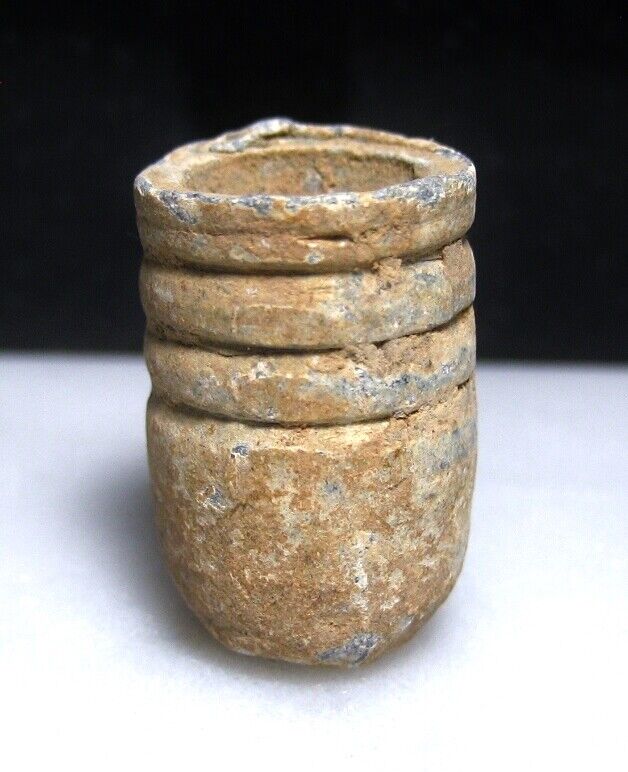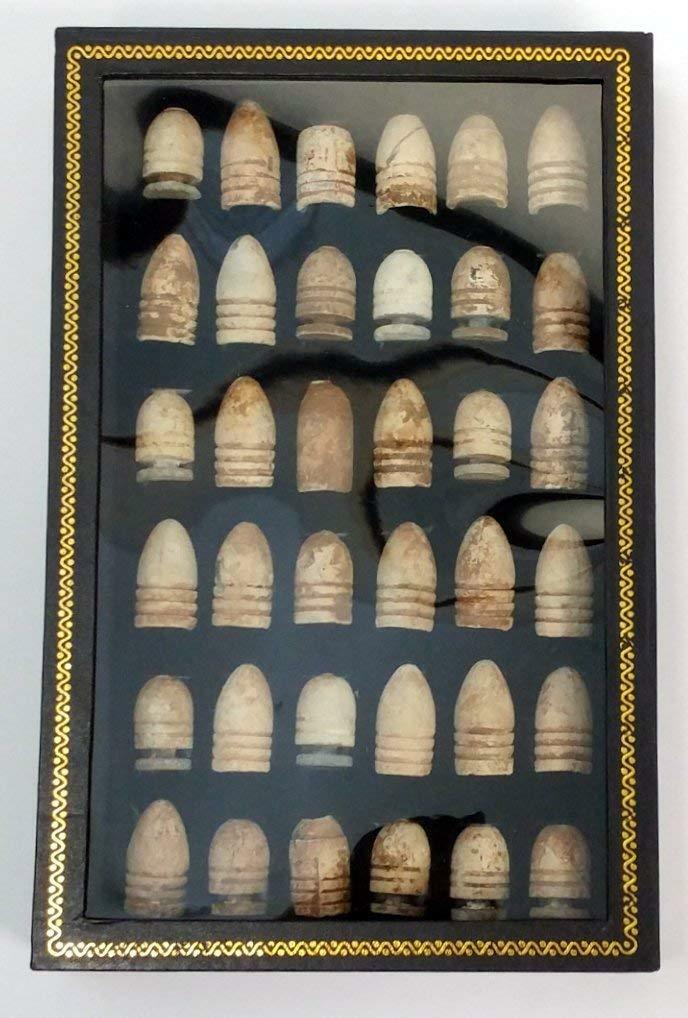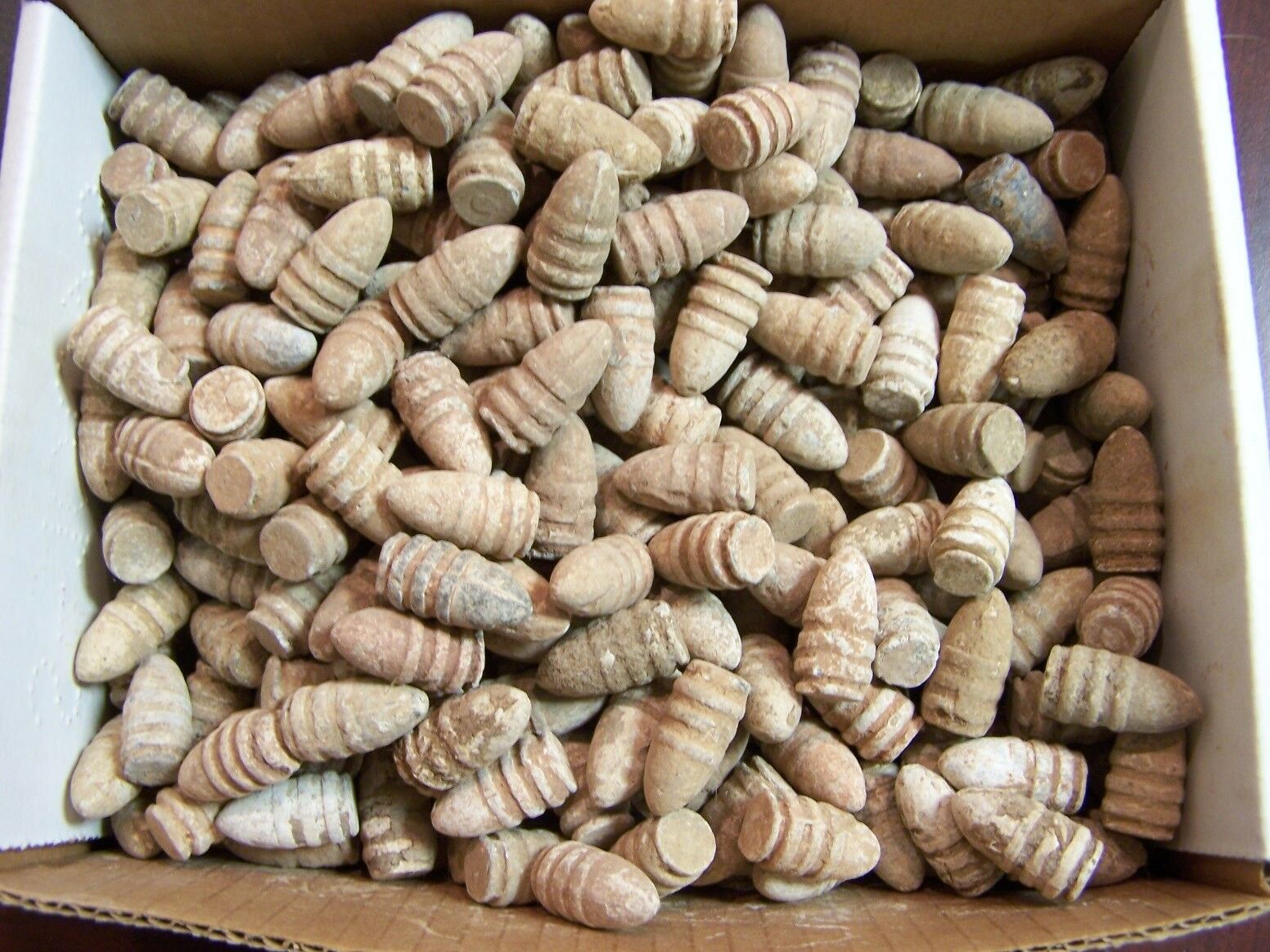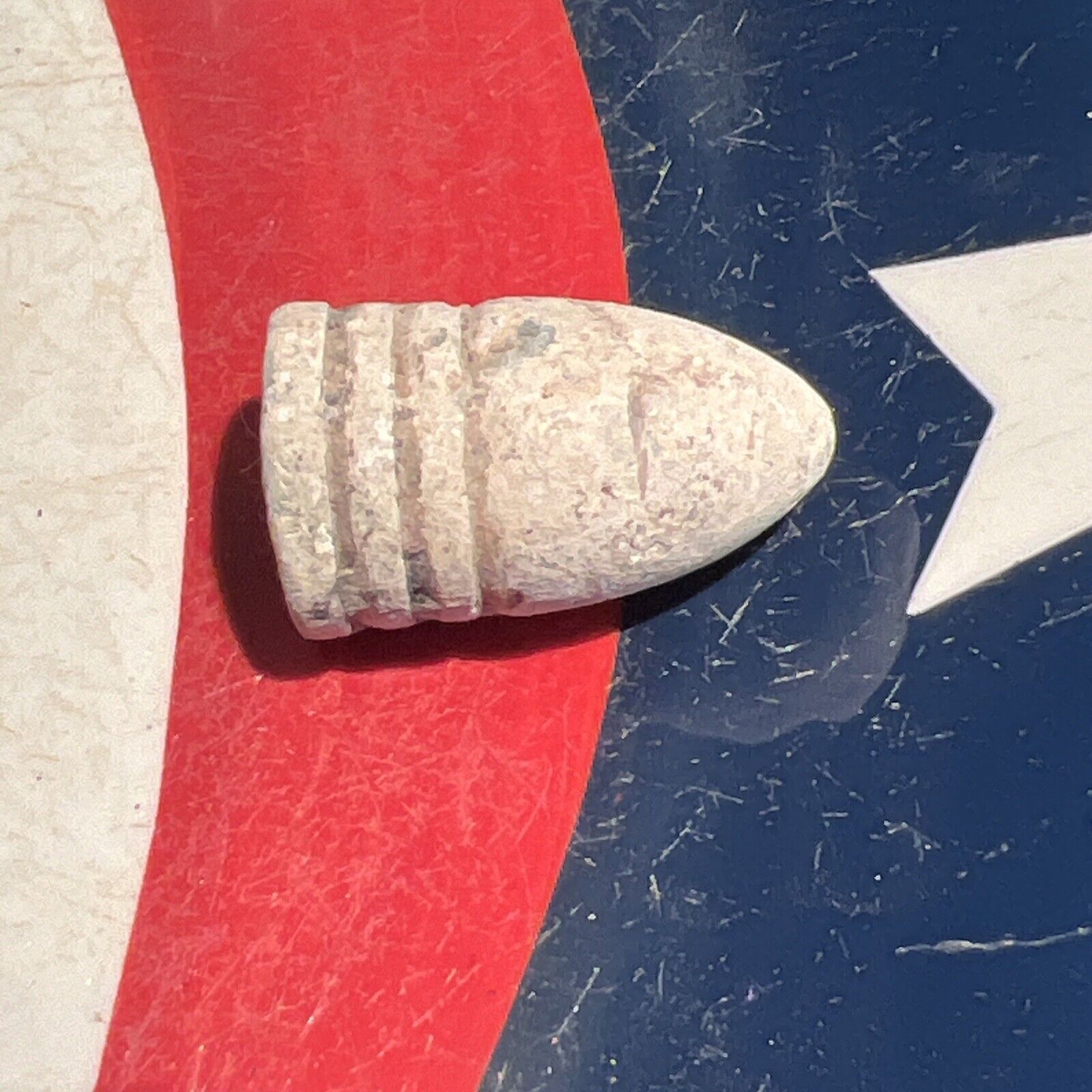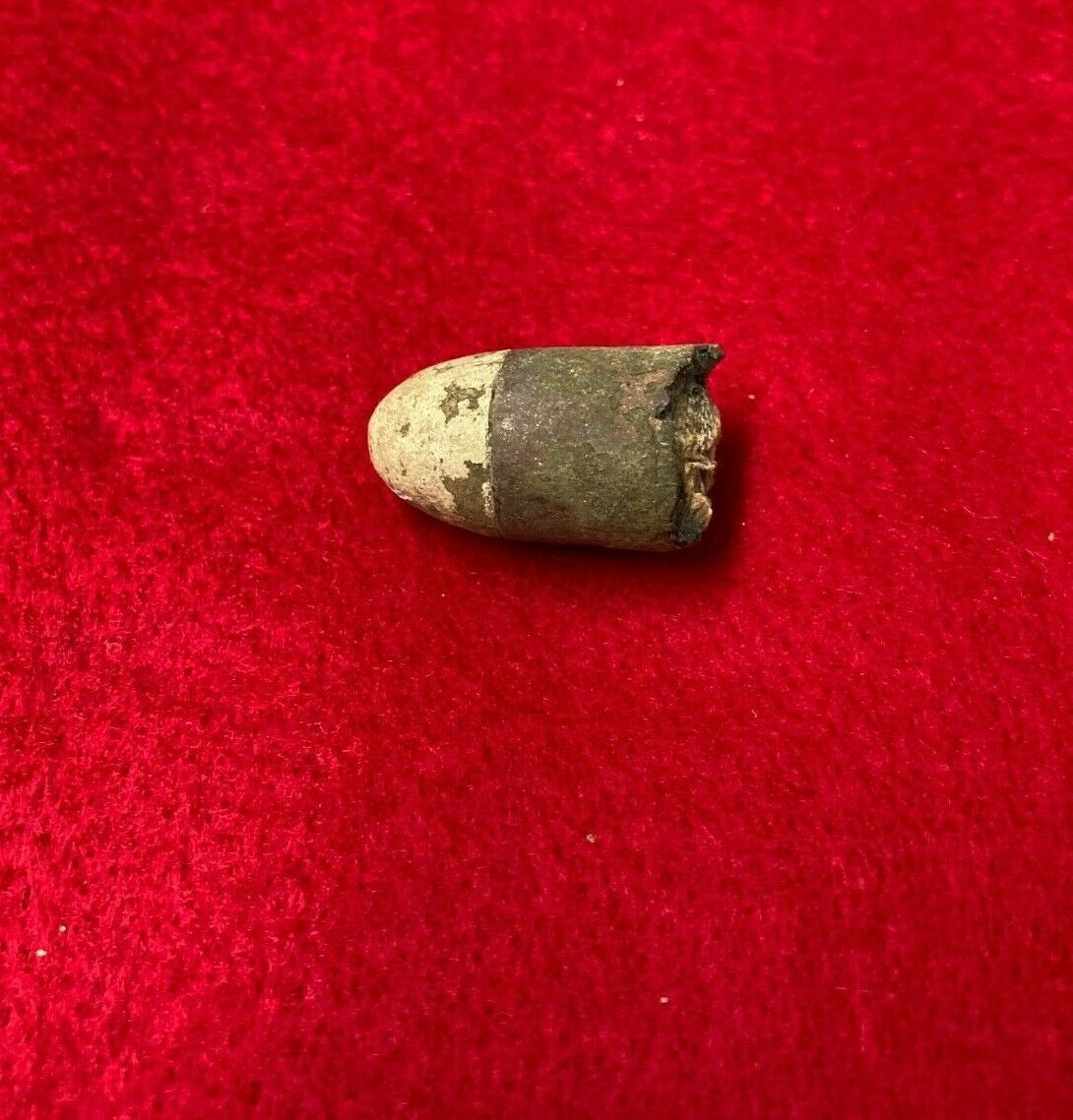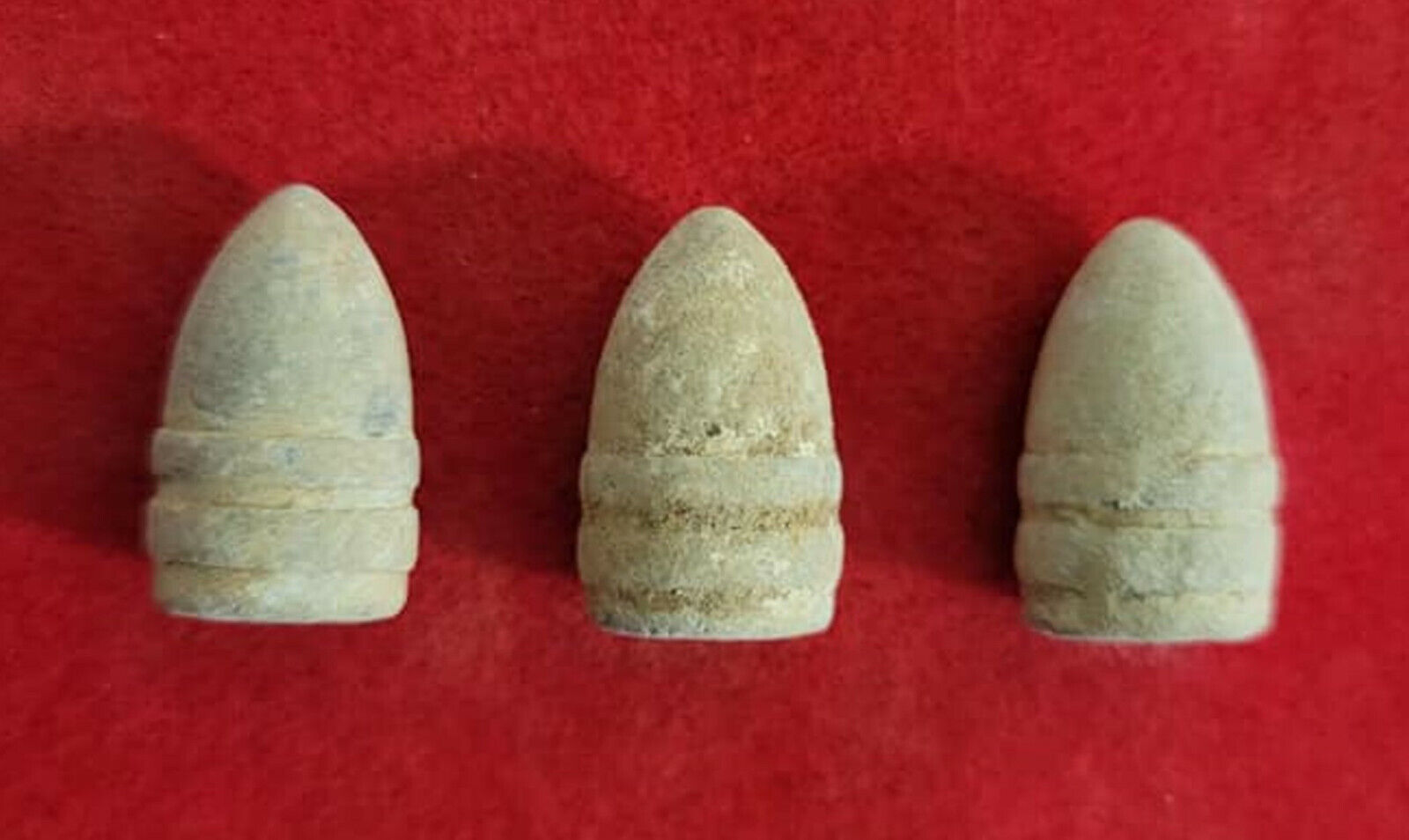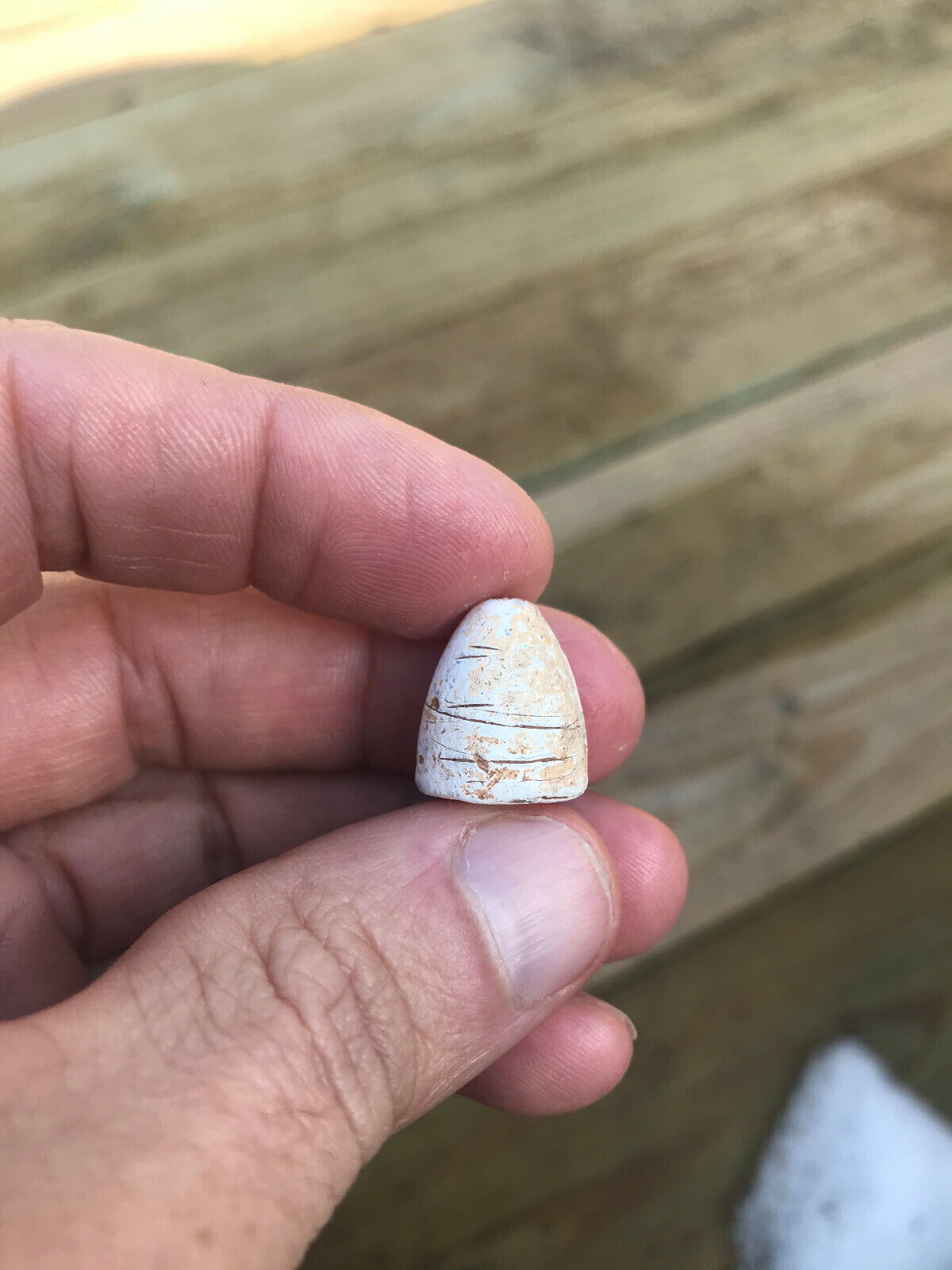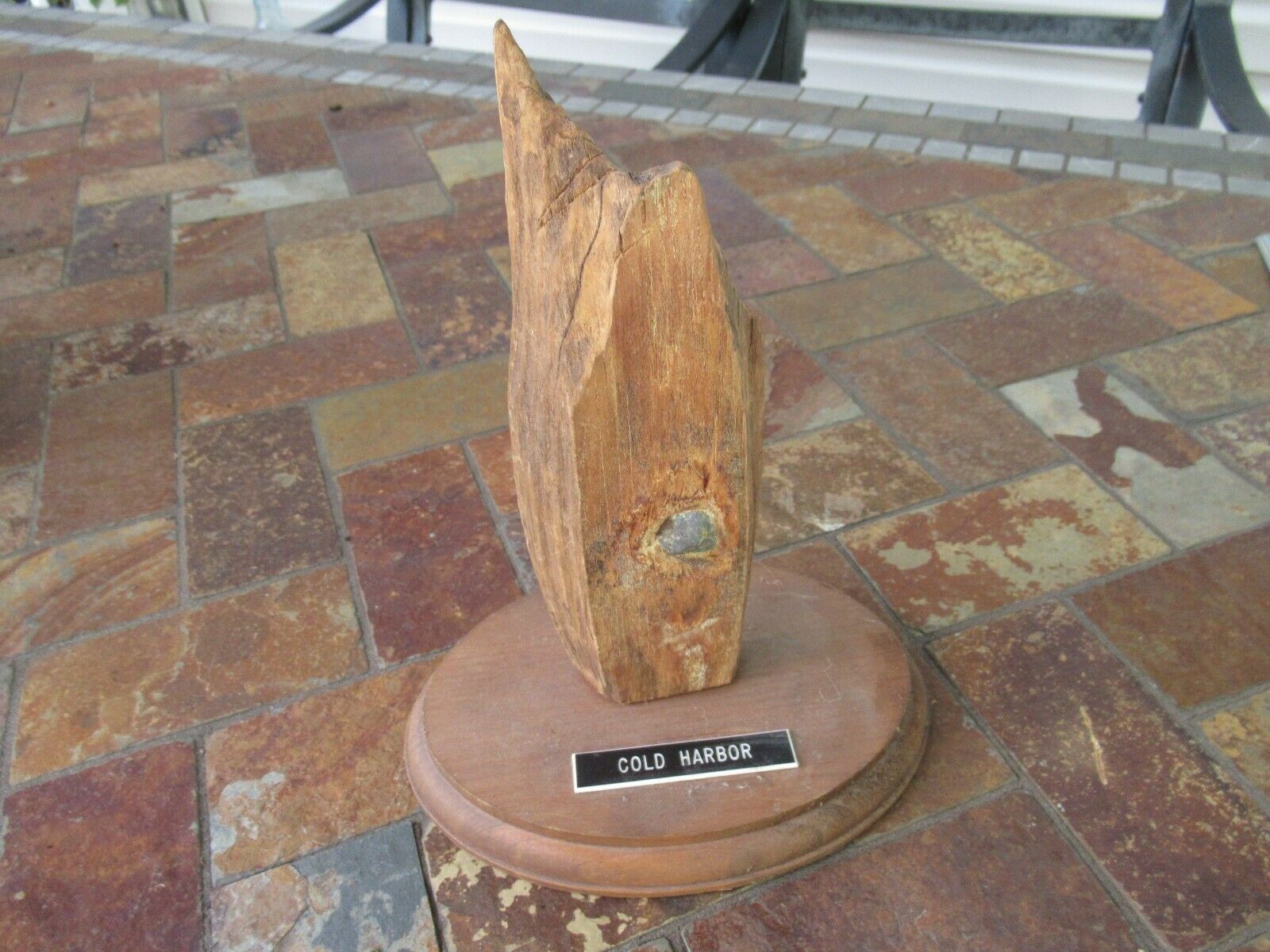-40%
Todd's Tavern VA Civil War Relic Fired 58 Rifle Bullet Recovered by Bill Gavin
$ 13.19
- Description
- Size Guide
Description
We are working as partners in conjunction with Gettysburg Relics to offer some very nice American Civil War relics for sale. The owner of Gettysburg Relics was the proprietor of Artifact at 777 on Cemetery Hill in Gettysburg for a number of years, and we are now selling exclusively on eBay.THE BATTLE OF TODD'S TAVERN, VIRGINIA - DUG BY BILL GAVIN AND FROM HIS COLLECTION - A very nice Fired high-impact direct hit, .58 Caliber 3-Ring Bullet
(Nose flattened from impact) - part of the collection of the famous relic hunter Bill Gavin.
A very nice Fired high impact direct hit .58 Caliber 3-Ring Bullet with great provenance.
This artifact was recovered at the site of the Battle of Todd's Tavern, Virginia
,
and was a part of the collection of the famous relic hunter Bill Gavin
.
Bill Gavin was the first relic hunter to use a metal detector to search for Civil War artifacts (back in the 1940s - the first location was Cold Harbor) and amassed a huge collection of items in the decades that followed. Gavin wrote four books, including the well-know "Accoutrement Plates North and South, 1861-1865" and several articles and was well respected for his knowledge in the field. He passed away in 2010. A provenance letter will be included with this relic.
The Battle of Todd's Tavern
Cavalry Operations - May 6-7, 1864
David McMurtrie Gregg
'While Union and Confederate infantry were engaged in a death struggle in the Wilderness, the cavalry was vying for control of the Brock Road here at Todd's Tavern. Union horsement led by General David Gregg had held the intersection here in the early stages of the battle, but at noon on May 6, cavalry chief Philip Sheridan ordered Gregg's horsemen back to Alrich farm, four miles away, to better protect the army's ponderous wagon train. Confederate General Fitzhugh Lee and his horsemen promptly moved up and seized Todd's Tavern. The next day, Grant decided to leave the Wilderness and press on to Richmond by way of Spotsylvania Court House using the Brock Road. To do so, control of Todd's Tavern was essential. Meade ordered Sheridan to retake the intersection at once.
Sheridan promptly advanced General Wesley Merritt's division from Catharine Furnace to menace Fitz Lee from the north, along the Brock Road, and, at the same time, dispatched Gregg's horsement to outflank Lee by way of the Catharpin and Piney Branch roads. Threatened from two directions, Lee had no choice but to fall back down the Brock Road to its intersection with the Piney Branch Road, two miles south, and throw up log defenses. Sheridan attacked those defenses and a stiff battle ensued. Lee was compelled to yield his logworks and fall back closer to Spotsylvania. Inexplicably, however, Sheridan ordered his troopers back to Todd's Tavern that night, allowing Fitz Lee to reoccupy and strengthen the logworks he had relinquished earlier in the day.
That same night, May 7, Meade sent Sheridan an order directing him to clear the Brock Road all the way to Spotsylvania Court House. Unfortunately, Sheridan failed to communicate this order to his subordinates. When Grant and Meade arrived at Todd's Tavern around midnight, just ahead of General Gouverneur Warren's corps, they found Gregg's troopers camped around the building. Meade angrily aroused Gregg's men from their slumber and sent them galloping south to clear the road. Again the Union horsemen found Fitz Lee's cavalrymen blocking their path. Unable to dislodge them, Sheridan's men stepped aside and gave Warren the lead. The Fifth Corps commander quickly overpowered Lee's men and sent them scampering southward. The road to Spotsylvania Court House was finally open.
The Battle
Lee assigned the job of slowing down the Union columns and protecting the Confederates' route to Gen. Jeb Stuart, his trusted cavalry commander. Grant's orders to his cavalry chief, Gen. Philip H. Sheridan, were to cut the route the Confederates would take to Spotsylvania and to take and hold the crossroads. On May 7, the two opposing cavalries met at Todd's Tavern at 4:00pm. They engaged in a slashing cavalry battle until after dark. The Confederate cavalry retired after nightfall.
The battle resumed the next morning. It was an obstinate struggle with heavy losses on both sides. The Confederates were slowly pushed back upon Spotsylvania. They were just about to have to abandon the crossroads when the first of Lee's infantry arrived, across a bridge Sheridan had ordered his cavalry to destroy. The infantry secured the area for the Confederacy.
Aftermath
Declaring the battle victorious for either side is problematic. While Stuart's cavalry was tactically defeated, Sheridan failed to cut the Confederate route to Spotsylvania, resulting in the bloody battle that ensued there. Yet, the delay caused by Sheridan's cavalry prevented Lee from gaining the advantages that an unhindered march to Spotsylvania would have garnered. The net effect was the continued and eventually fatal bleeding of the Army of Northern Virginia, at the cost of yet more Union casualties ... which could be replaced with fresh Northern recruits. Thus, on the balance, the result was very slightly better than a draw for the Union forces. Today, there is information about the battle in the area provided by the Fredericksburg and Spotsylvania National Military Park.'
We include as much documentation with the relics as we possess. This includes copies of tags
if there are original identification tags or maps, as well as a signed letter of provenance with the specific recovery information.
All of the collections that we are offering for sale are guaranteed to be authentic and are either older recoveries, found before the 1960s when it was still legal to metal detect battlefields, or were recovered on private property with permission. Some land on Battlefields that are now Federally owned, or owned by the Trust, were acquired after the items were recovered. We will not sell any items that were recovered illegally, nor will we sell any items that we suspect were recovered illegally.
Thank you for viewing!
